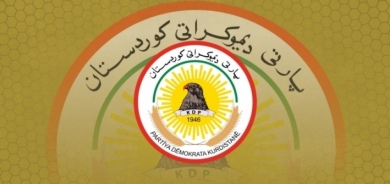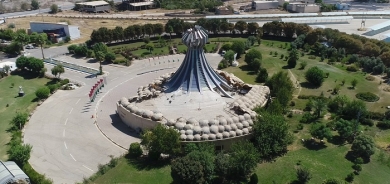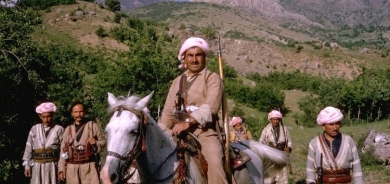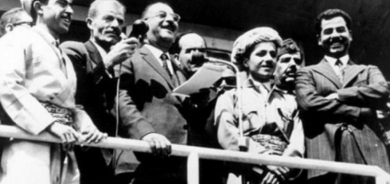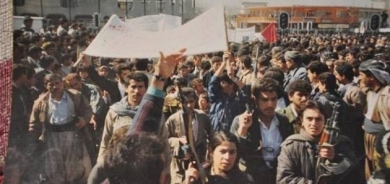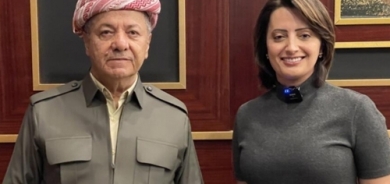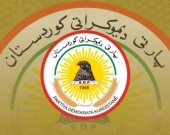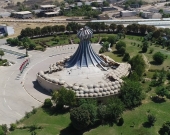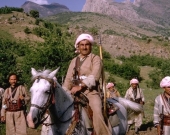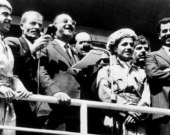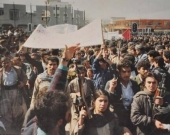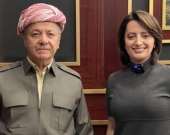Kurdistan is already operating as an independent nation
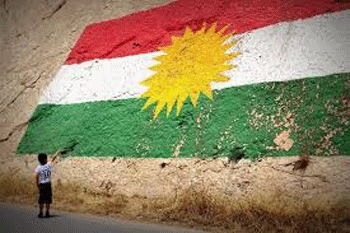
Political analyst Saro Qadir believes that Kurdistan is ready for independence. Indeed the political commentator, writer believes that in many senses Kurdistan is already operating as an independent nation.
I managed to get through to Saro Qadir after calling him few times to ask his opinion on the future of Kurdistan, the present situation in the region, and the shape of Kurdish society. Although I was told ahead of time that the delicate situation might mean Saro Qadir wasn’t that forthcoming, in fact, he was open and welcoming, answering my questions with remarkable clarity. I asked him the kind of questions so many people these days seem to have around the possibility of Kurdistan’s long awaited referendum on independence, and his answers seemed to emphasise the same thing again and again: Kurdistan is already in a position where it functions independently. Formal independence would not change that.
I started by asking about the most obvious physical aspect of Kurdistan’s borders: the trenches designed to keep out militant vehicles and slow any incursions into its territory. They have become a symbol, marking the limits of Kurdish territory, but also marking it as something separate from both Iraq and the other countries around it. When I asked if those borders were likely to be reinforced, he replied that he was ‘not an army man’, but that the borders might be reviewed once Kurdistan reached a stage where its relations with its neighbours were more settled.
It seems from this that for a political analyst like Saro Qadir, the issue is less one of immediate physical defence than of that symbolic value, and the declaration the trenches make about the extent of Kurdistan’s borders. They are something to stay as they are until Kurdistan’s situation is more settled, serving as a physical reminder until its neighbours accept the reality of those borders. It is possible in the short term that the trenches might find themselves enhanced with fences or guard posts, but the issue is not so much the solidity of the defences as the fact of their existence. Indeed, when I asked if that kind of reinforcement would make Kurdistan safer, Saro Qadir was quick to emphasise that ‘Kurdistan is already a safe place’ and that it was not so much about making it safe as about making it stronger.
That same feeling ran through questions about the potential consequences of independence, the threats that might arise from it, and the elements that are often raised as potential problems with becoming independent. Saro Qadir was quick to emphasise that ‘we will not face more threats than we do now’, and that the military situation would not change simply because Kurdistan chose to become independent. The truth is that the region already faces threats from outside. It already faces pressures from its neighbours and from the international community. It is already very much at odds with the Baghdad government, with which it has been in disagreement over issues ranging from oil to funding for some time now.
Indeed, Saro Qadir suggests that Kurdistan’s relationships with Baghdad and with the countries that border the region might actually be better if they are able to relate to one another as mutually respectful countries. Kurdistan and Iraq already treat one another almost as neighbours, so it would only be a small step to go the rest of the way. By doing so, they might actually be able to produce a more stable situation in the wider region.
The economics of independence are obviously of vital importance. If it wishes to beindependent, Kurdistan needs to be able to show that it can manage without the resources of Iraq as a whole, and that its economy has a strong enough base to function alone. There is the obvious presence of oil in all the debates, but the questions are usually more about who owns what, how successful Kurdistan will be in exporting to other countries, and how well it will be able to fare in other fields, particularly without the supplement to its budget that is supposed to be sent north by the Baghdad government.
For Saro Qadir, the answer to this is simply that ‘for one and a half years, we have been running the country without a budget from outside’. For a year and a half, Baghdad hasn’t been sending the budget northwards that it agreed to in an attempt to resolve earlier disputes over oil. For month after month, Kurdistan has found itself forced to meet the costs of both defence and the needs of civil society with only its own resources to fall back on. Kurdistan can do it because ithas been doing it.
More than that, it can probably do it as well as anywhere else in the region. Of course, it has the massive value of its oil resources to use as a starting point, but there is more to it than that. There is a vibrant enthusiasm for the growth of the new economy in Kurdistan, founded on a combination of the inventiveness of its population and the connections that its position affords it. Kurdistan is ‘close to international markets’, well placed to trade in commodities or to serve as a staging point for trade both within the region and beyond. It has already made major economic strides from its position twenty years ago, and is well placed to attract further international investment, based on its reputation as probably the most stable, moderate society in the area.
The trick is to build from the current situation to one where Kurdistan is independent. ‘That is why I call Massoud Barzani the engineer of the structure of Kurdistan’s independence,’ Saro Qadir said when I put this to him, and it is a valid sentiment. Kurdistan’s current situation is one that needs an engineer’s mind-set as much as a soldier’s, seeing the way things connect together and affect one another. It is one that calls for defence, but also for the building of what comes next. Neither element works without the other.
The possibilities are impressive, and the most important part when it comes to those possibilities is that they are already becoming realities. It is not a case of guessing at things that might happen if Kurdistan becomes independent, but simply seeing where what is already happening might lead. It is not a case of assessing the risks, because we can already see the consequences rippling out.
Even socially, it seems clear that independence would not be a question of leaping into the unknown, as I asked political activist women about the position of women in Kurdistan and what any referendum would do for their position there. For her ‘women already play a part’ throughout Kurdistan’s society, having more rights, and a greater commitment by the government to the protection of those rights, than anywhere else nearby.
The issue seemed not to be one of the potential upheaval of independence, because it seemed likely that there would be none. For Saro Qadir, the move to independence appears to be almost an afterthought, with Kurdistan already functioning independently in every way that matters. It does not represent the creation of a new situation, but rather the formalisation of a situation that already exists in fact.
Put like that, the question may be one of why Kurdistan should do it at all. If Kurdistan has everything that it might get from independence, then why should it bother with it? The answer to that is permanence. Currently, it has all the elements of a functioning state, separate from Iraq, yet if it does not make that arrangement formal, if it does not truly achieve independence, then there is a danger of all those elements slipping away. While the conflict in the region continues, Kurdistan might retain its current degree of separation from Iraq, but without a more formal split, the Baghdad government, or others, might try to role that separation back step by step.
Yet if Kurdistan does try for independence, there are questions to be addressed and potential threats to be understood, countered and moved past. Saro Qadir outlined several of these when I asked him, pointing to the politics of independence as one of the main potential stumbling blocks, so that ‘our main threat may be our own political crisis.’ Although the current government of Kurdistan remains committed to independence, there are plenty of others, including Goran, Kurdistan’s Islamic party, the PKK and some elements of the PUK who have voiced their opposition.
Some of that opposition is to the form that an independent Kurdistan would take, with some groups wanting a much larger version of the state that would antagonise its neighbours. The objections of others can be seen as a political move, based on political differences with thePDK. They will, in Saro Qadir’s words ‘do everything they can to stand against Massoud Barzani, to put a hold on it.’
Yet how much are these groups likely to do in the event that a referendum takes place? Those in opposition will likely campaign against independence, but then it will be down to the people of Kurdistan to decide. The willingness to have that debate openly and honestly is one of the marks of the independent, stable, democratic state Kurdistan wants to be.
It is the groups that might be prepared to use violence that we need to consider in this context. Do the PKK represent a threat in the event of a referendum? For Saro Qadir ‘they can be and they can’t be’. They certainly have the potential to create difficulties for the newly formed state if they choose to do so, but at the same time, they know that it is not an option they can afford to take.
If they did so, they would become exactly the kind of group that they currently seek to differentiate themselves from. They would slide from being a group that attempts to portray itself as far better, far more principled, than ISIS, to being nothing more than another gang of militants. They currently succeed because they have at least the tacit support of the international community, and because they are playing a role in the wider conflict. To go against the result of any referendum would be to throw away that support.
As for ISIS, Saro Qadir is clear that ‘we are pushing them back’. Indeed, they are being pushed out of Kurdish territory that in some cases the only reason they still hold particular villages or towns is because of the risk of civilian casualties in taking them back. While it seems likely that the conflict will last for some time to come, it also appears clear that the group is not currently positioned to do major damage to Kurdistan. Certainly, a declaration of independence would not increase the likelihood of such damage.
That is the core message that speaking with Saro Qadir gave me. Not that Kurdistan has the potential to be independent in the future. Not that everything will somehow change, for better or worse, in the months after any declaration of independence. The message coming from his assessment of the situation is not one of change but of stability. Of Kurdistan proceeding along the path that it has already started to carve out for itself.
It makes complete sense that it should. Kurdistan already has de-facto independence. It operates as its own country in every sense that matters. Formal independence is the next step along that road. It is a step that has the potential to create more stability, and whose risks are ones that already exist. It seems certain that Kurdistan would be no worse off as a result of the referendum, but the potential for its future is bright.

